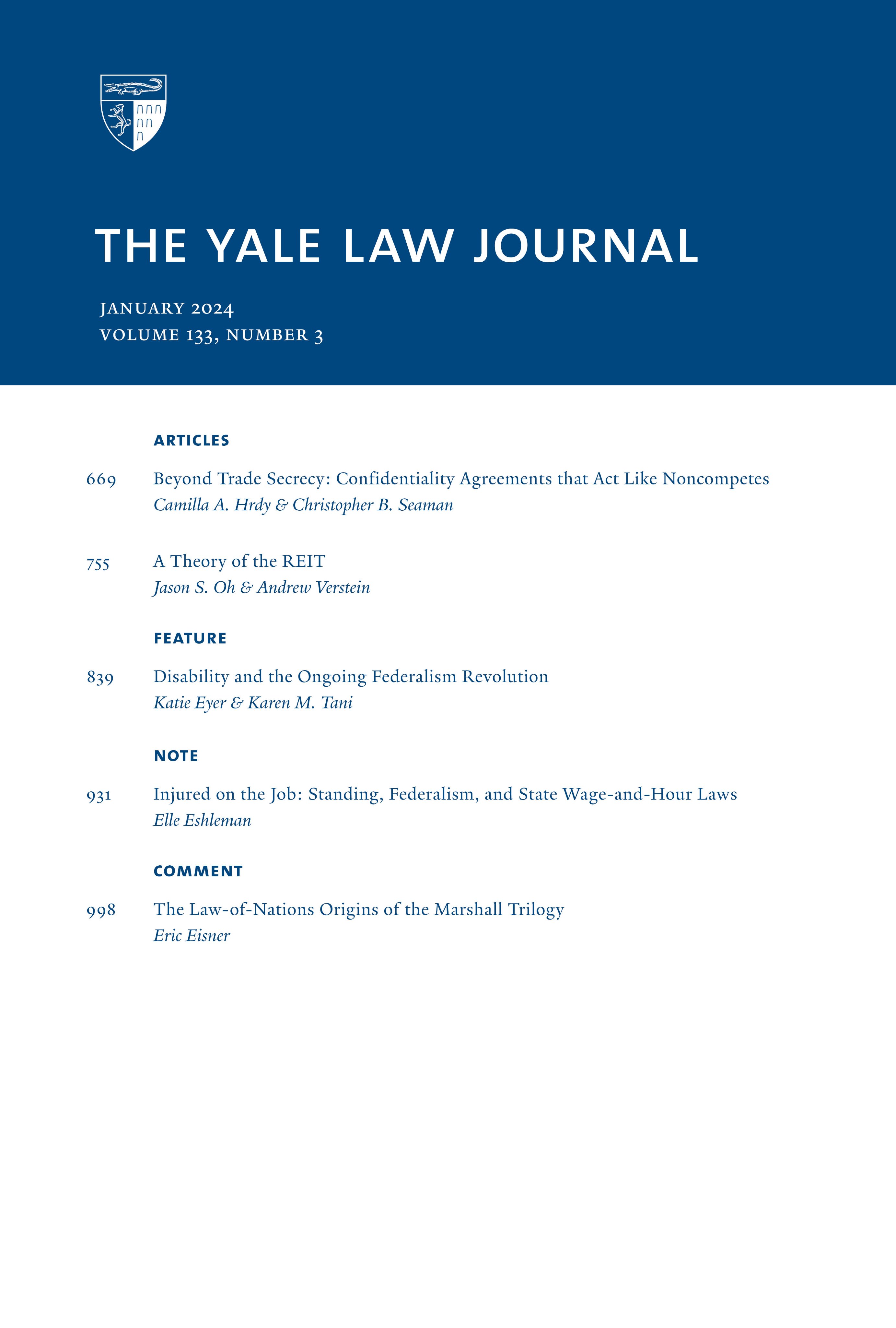总统和移民法
IF 5.2
1区 社会学
Q1 LAW
引用次数: 46
摘要
这本书挑战了国会——而不是总统——控制移民法的神话,以详细而全面的立法法典来决定谁可以来美国,谁可以留下。本书借鉴了广泛的资源——丰富的历史资料、有关移民执法的独特数据,以及对美国庞大的移民官僚机构的内部描述——揭示了总统是如何在两个世纪的过程中成为我们的移民政策制定者的。从建国时期关于《外国人法》和《煽动法》的辩论,到吉米·卡特(Jimmy Carter)对古巴马里埃尔(Mariel)偷渡事件的干预,再到上两届政府对南部边境的中美洲寻求庇护者的反应,总统的危机管理在这个故事中发挥了重要作用。然而,更为根本的是执行法律的普通行政义务。随着时间的推移,这种责任所产生的权力已经成为美国制定移民政策的核心工具。在探讨这种权力的含义时,这本书还提供了一幅改革蓝图,它接受而不是哀叹总统在塑造国家社会方面所扮演的角色,同时概述了遏制在移民及其他领域滥用执法权力的策略。本文章由计算机程序翻译,如有差异,请以英文原文为准。
The President and Immigration Law
This book challenges the myth that Congress—not the President—controls immigration law, dictating who may come to the United States, and who may stay, in a detailed and comprehensive legislative code. Drawing on a wide range of sources—rich historical materials, unique data on immigration enforcement, and insider accounts of the nation’s massive immigration bureaucracy—it reveals how the President has become our immigration policymaker-in-chief over the course of two centuries. From founding-era debates over the Alien and Sedition Acts, to Jimmy Carter’s intervention during the Mariel boatlift from Cuba, to the last two administrations’ reactions to Central American asylum seekers at the southern border, presidential crisis management has played an important role in this story. Far more foundational, however, has been the ordinary executive obligation to enforce the law. Over time, the power born of that duty has become the central vehicle for making immigration policy in the United States. In grappling with the implications of this power, the book also provides a blueprint for reform, one that accepts rather than laments the role the President plays in shaping the national community, while outlining strategies to curb the abuse of law enforcement authority in immigration and beyond.
求助全文
通过发布文献求助,成功后即可免费获取论文全文。
去求助
来源期刊

Yale Law Journal
LAW-
CiteScore
4.50
自引率
6.20%
发文量
0
期刊介绍:
The Yale Law Journal Online is the online companion to The Yale Law Journal. It replaces The Pocket Part, which was the first such companion to be published by a leading law review. YLJ Online will continue The Pocket Part"s mission of augmenting the scholarship printed in The Yale Law Journal by providing original Essays, legal commentaries, responses to articles printed in the Journal, podcast and iTunes University recordings of various pieces, and other works by both established and emerging academics and practitioners.
 求助内容:
求助内容: 应助结果提醒方式:
应助结果提醒方式:


